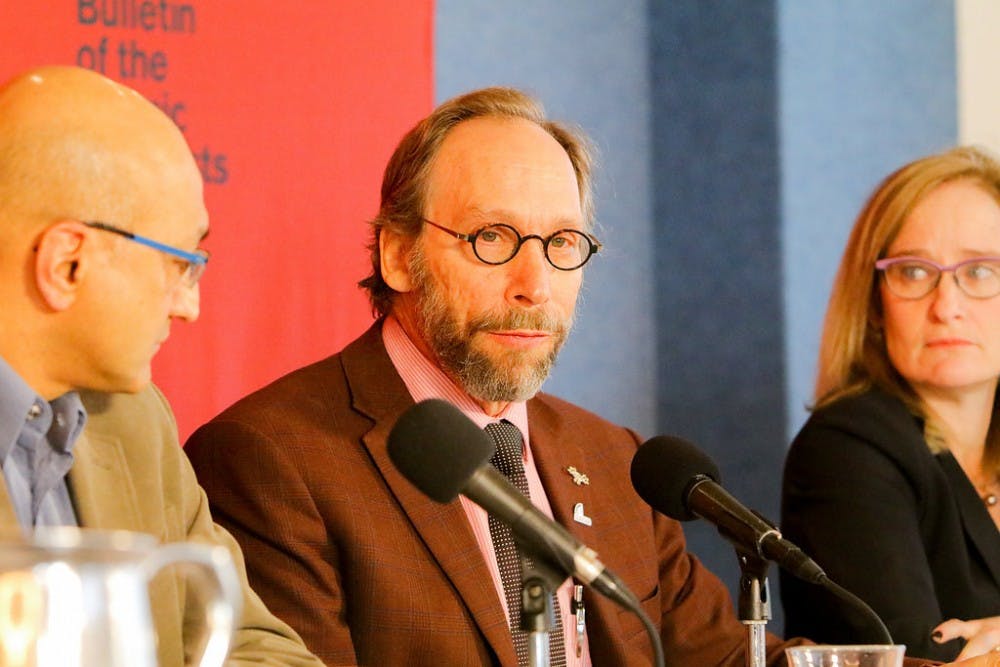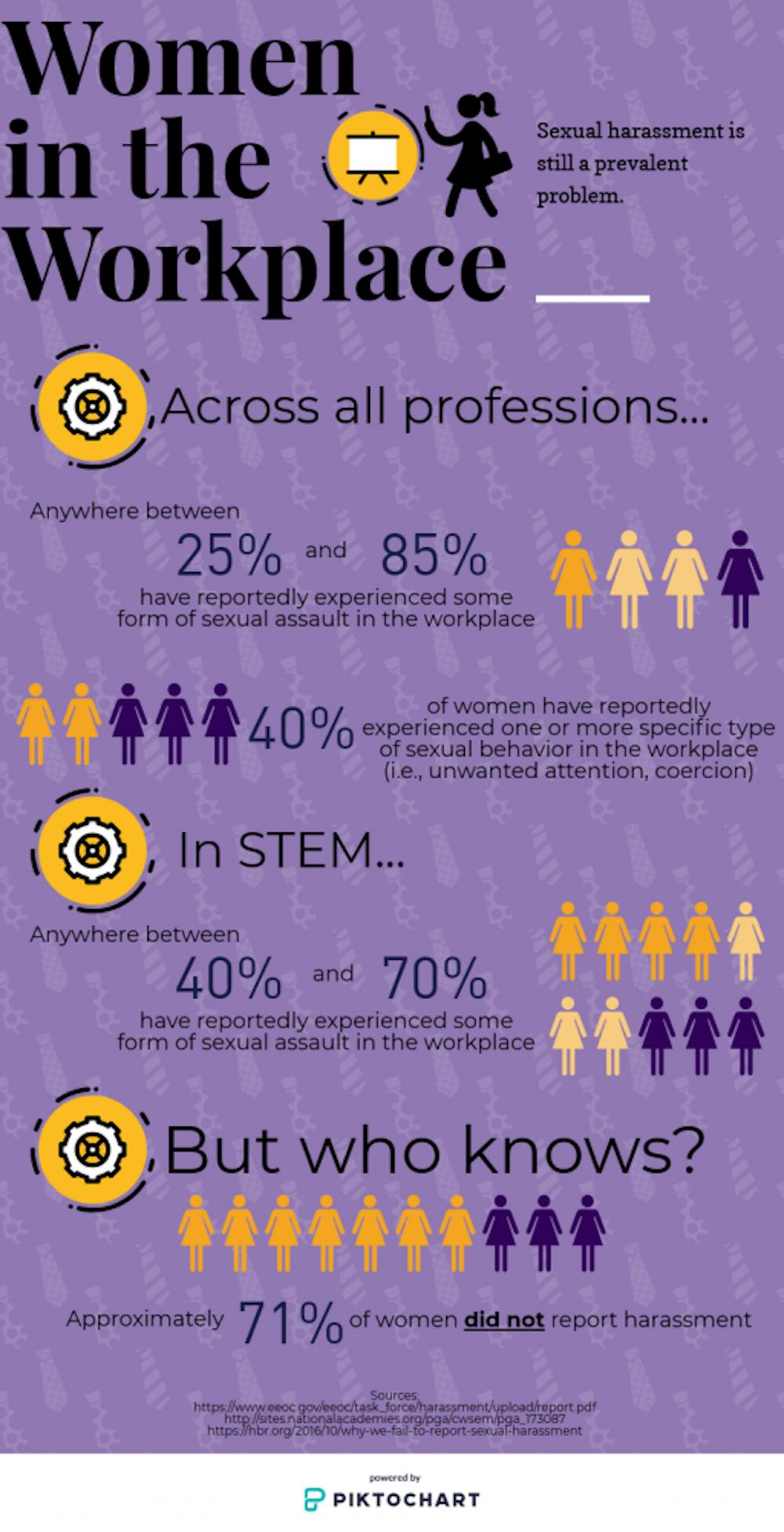In February, Lawrence Krauss, a prominent ASU professor and founder of the Origins Project, garnered national attention when multiple women accused him of sexual misconduct.
Since then, Krauss has been placed on paid administrative leave while the University investigates the issue.
Although the situation is being handled reactively, the allegations are symptomatic of a larger issue of sexual harassment in the fields of science, math, engineering and technology.
As an aerospace engineering major myself, the issue of gender discrimination against women is unfortunately all too familiar, and the fact that it continues to persist creates frightening prospects for the future of women in STEM fields.
Mary Margaret Fonow, an ASU professor of women and gender studies, said that sexual harassment often occurs in work environments in which women are underrepresented.
“When you are in such a minority, it is easier to make environments that are unwelcoming to women because you don’t have a minimum number of women there to make sure that there is some solidarity when something like that happens,” Fonow said. “People will say, ‘Avoid contact with so-and-so,’ but that’s not a welcoming work environment if you have to avoid contact with someone who’s important in your field.”
Unfortunately, it often falls on women to protect one another against sexual harassment — but that shouldn't be the case.
In particularly male-dominated fields such as STEM, where some workforces are nearly 92 percent male, it is not uncommon for women to experience sexual harassment, gender discrimination and subtle degradation.
According to the National Academies’ Committee on Women in Science, Engineering and Medicine, anywhere between 40 and 70 percent of women in STEM fields have experienced sexual harassment, either as students or at their jobs.
While the number of cases of sexual harassment is shockingly high, many of these cases likely went unreported.
“Everybody has the right to expect fairness, due process and evidence,” Fonow said. “But sexual harassment is one of the most underreported crimes. There’s already a reluctance to come forward.”
Sexual harassment in STEM is both overlooked and underreported by women, often due to their fear of having their credibility questioned or even losing their jobs.
“Sexual harassment isn’t just about sex,” Fonow said. “It’s also about any attention that undermines your ability as a woman to function in the workplace. It’s not just limited to catcalls or groping or assaults, it’s any environment that makes it hard for you to perform as a worker.”
The #MeToo movement brings seemingly distant issues of sexual harassment to the forefront of the discussion on sexism. The movement has now found its place on campus as students and faculty address the prevalence of the issue in academia.
ASU students should know that there are resources available to them in the case that they ever experience sexual harassment during their time at the University.
Women in STEM should not have to tolerate sexual harassment in any capacity as they go through college and into their careers.
“Students have the right to expect fairness in the classroom, in their programs of study, in their study abroad, in their internships, that’s a basic right they have,” Fonow said. “Any violation of your performance as a student in any of those settings should be the grounds for reporting it. You don’t have to accept any kind of bullying. It’s unprofessional, it goes against the professional code of what it means to be a professor in a university.”
While ASU has taken measures to investigate Krauss and has historically been vocal about speaking out against sexual harassment, the situation as a whole, whether the allegation against Krauss are true or not, highlight a need to vet future job candidates so as to prevent bringing people onto campus who threaten the safety and productivity of students and faculty.
“There’s too much national visibility now, on the question of sexual harassment,” Fonow said. “It’s hard to imagine that institutions won’t take it seriously.”
Reach the columnist at kalbal@asu.edu or follow @KarishmaAlbal on Twitter.
Editor’s note: The opinions presented in this column are the author’s and do not imply any endorsement from The State Press or its editors.
Want to join the conversation? Send an email to opiniondesk.statepress@gmail.com. Keep letters under 500 words and be sure to include your university affiliation. Anonymity will not be granted.
Like The State Press on Facebook and follow @statepress on Twitter.





